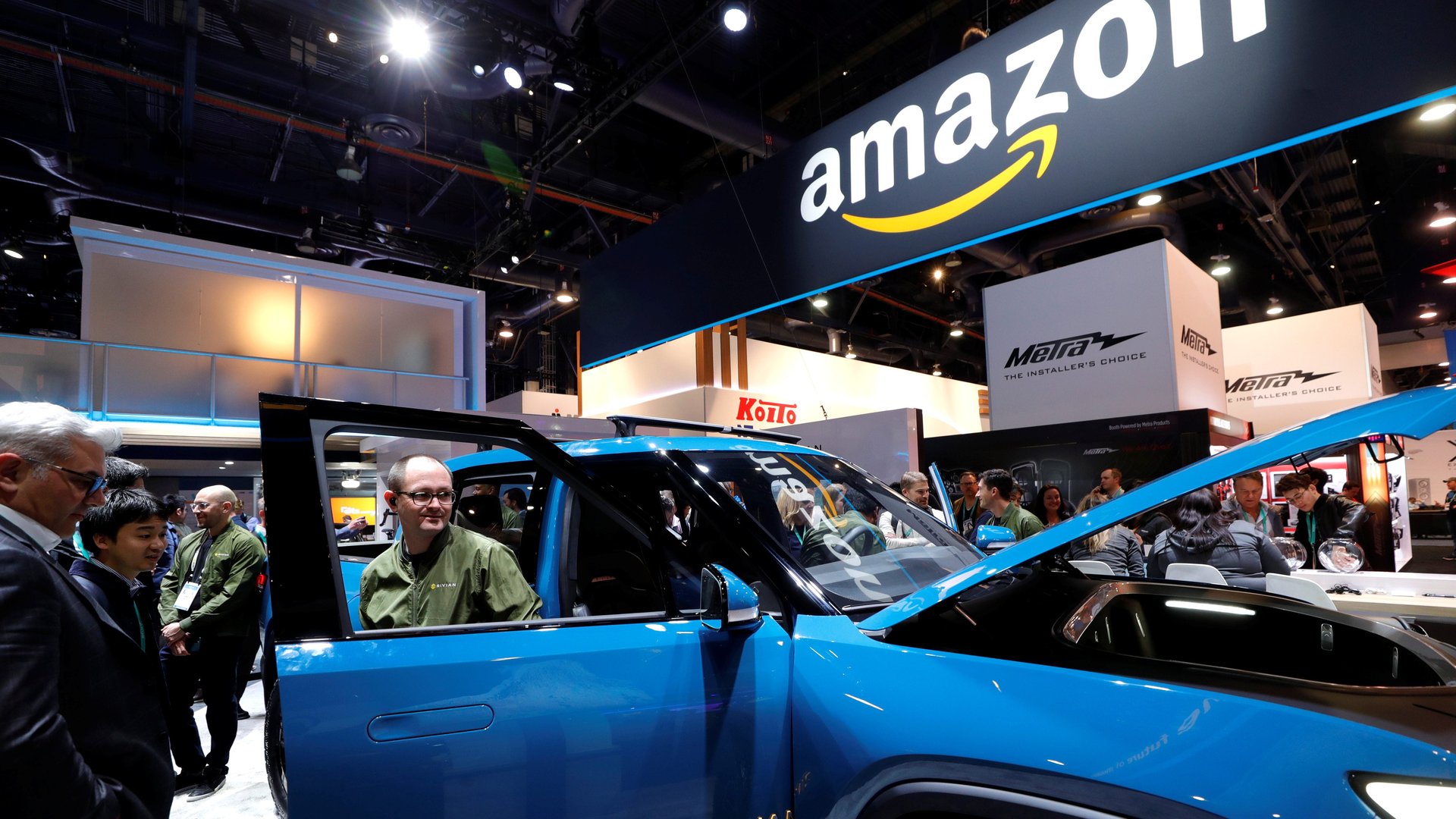Alexa was everywhere at CES
Alexa became an omnipresent force at this year’s Consumer Electronics Show in Las Vegas. It may have been harder to find a device that didn’t have Amazon’s voice assistant built-in at the tech industry’s annual showcase. From Instant Pots to motorcycle helmets to electric toothbrushes, Alexa seemed to be everywhere.


Alexa became an omnipresent force at this year’s Consumer Electronics Show in Las Vegas. It may have been harder to find a device that didn’t have Amazon’s voice assistant built-in at the tech industry’s annual showcase. From Instant Pots to motorcycle helmets to electric toothbrushes, Alexa seemed to be everywhere.
The sheer number of brand partnerships and third-party integrations isn’t a coincidence: With its main rival Google planning to pre-install its own AI in an estimated one billion devices, Amazon wants its voice technology in as many devices as possible.
Swedish bed maker Dux rolled out a $4,950 Alexa-enabled bed that would allow its lucky owner to perform tasks like dimming the lights or turning on the Roomba, all while in a supine position. Basketball legend Shaquille O’Neal, an early investor in Ring, the home surveillance system, joined celebrity chef Guy Fieri on stage as he showed off Food Network Kitchen, a new streaming service by Amazon and Discovery. Aspiring chefs can cook while playing tutorials from celebrity chefs on their Echo Show, which responds to voice commands (so they won’t have to lift a finger).
Weird and zany Alexa integrations are nothing new, at least at CES. We’ve seen Alexa-enabled toilets, meditation bands, e-bikes, washing machines, and more in years past. But this year, the stakes have increased for Amazon. Alexa, which the company first launched in 2014, now competes with voice assistants from Google (Google Assistant), Samsung (Bixby), Microsoft (Cortana), as well as Apple’s Siri. While Google Assistant had a fair showing at CES this year, showcasing partnerships with Sonos speakers and even a Google Assistant-powered escape room, Alexa appeared to lead in terms of sheer product integrations.
“Voice has become ubiquitous and Amazon has done a good job turning its first mover advantage with Alexa into a strong market share lead,” said Bradley Metrock, the CEO of Score Publishing, which hosts the annual Project Voice conference. “They have maxed out CES, and alongside Google, Samsung, and others, I’m not sure they can do more than what they’re doing there.”
Amazon has focused on getting Alexa into people’s living rooms and automobiles, where they’re likely to spend most of their free time. Smart TV makers including LG, Panasonic, and—most interestingly—Samsung announced new television models outfitted with Alexa. Samsung had long delayed hopping aboard the Amazon train, favoring its own voice assistant, Bixby. At last year’s CES, Samsung had a change of heart, announcing that its 2019 TV lineup would support both Google Assistant and Alexa. But in the past, you needed to own a separate device with either voice assistant included in order to connect it to your Samsung TV. Now, it appears that Samsung’s future TVs will have Alexa, Google Assistant, and Bixby built in from the start.
Alexa Auto had its own exhibit at the Las Vegas Convention Center, largely due to the sheer number of in-car integrations on display. Amazon announced it would roll out Echo Auto (a $50 Bluetooth-enabled device that essentially turns your car into one big Alexa speaker) internationally, starting with India on Jan. 15. US drivers later this year will soon be able to say “Alexa, pay for gas” at all Exxon and Mobil stations, shaving off a few seconds at the pump. And the number of automakers announcing partnerships with Amazon is growing. Lamborghini unveiled an Alexa-enabled Huracan Evo, which it plans to release this year. Rivian also debuted its all-electric R1T truck and R1S SUV, both compatible with Alexa.
While Alexa seems to be winning the numbers game, the future will be trickier as both Google and Samsung up their game, and smaller players roll out niche voice-activated products in banking, healthcare, and hospitality. According to Amazon, there are currently more than 100,000 Alexa-compatible smart home products from more than 9,500 brands, and more than 100,000 Alexa skills. The company has been pretty hush-hush about the exact number of Alexa users, declaring that there are “hundreds of millions”, and leaving it at that. Which means it’s unclear how much of a lead Amazon has over Google, its chief rival in the voice tech space. Google said at a press event earlier this month that Google Assistant has 500 million active users.
Metrock believes that 2020 will bring a subtle shift towards Alexa skills being especially designed for specific hardware. In other words, Alexa will serve a specific function tied to each new product (i.e. changing the channel, dimming the lights), rather than just serve as an all-purpose voice assistant that plays music and reads you the weather.
He raised the $4,950 Alexa bed as an example. “There may be Alexa skills that ultimately are only allowed to be enabled for Alexa in mattresses. Otherwise, what’s the need to have Alexa built into your mattress, when you could just have an Echo sitting on the nightstand?,” asked Metrock. All told, there are many who would sleep better if Alexa wasn’t in the room at all.